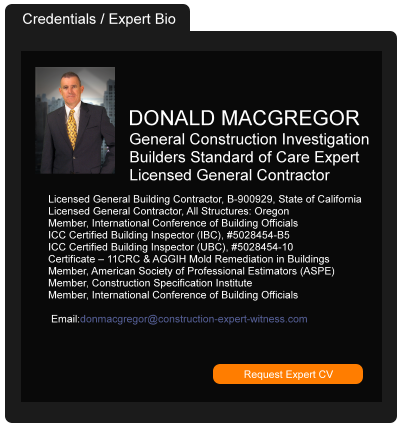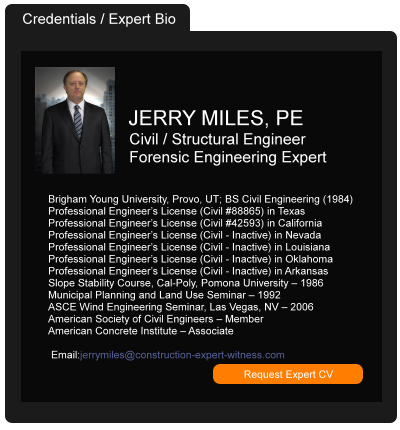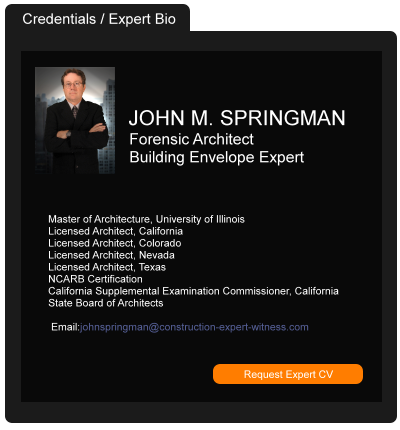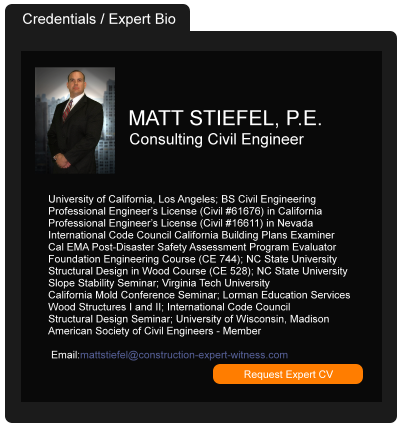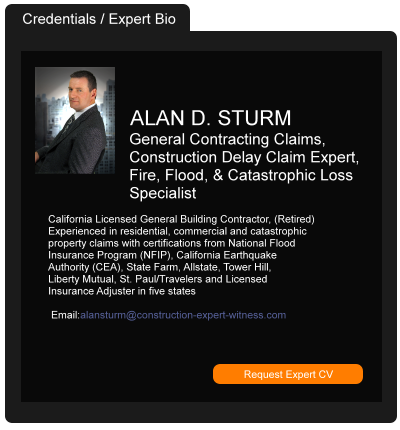Colorado Nearly Triples Damages Caps for Cases Filed in 2025, Allows Siblings to File Wrongful Death Claims
July 22, 2024 —
Amy Johnson - Lewis BrisboisDenver, Colo. (June 13, 2024) - On June 3, 2024, Colorado Governor Jared Polis signed HB24-1472 to increase the damages caps for personal injury and wrongful death claims. The law nearly triples the amounts available to plaintiffs, which will continue to increase for inflationary adjustments beginning in 2028 and every two years thereafter. These new damages caps affect not only claims that accrue in 2025 and beyond, but they also change the caps for any civil cases filed on or after January 1, 2025. This law was enacted as a compromise to a ballot measure that would have removed any cap on damages. The new caps are as follows:
- The cap on noneconomic damages for personal injuries will be $1.5 million.
- The cap on noneconomic damages for wrongful death will be $2.125 million.
Plaintiffs are likely to delay filing new actions through the rest of 2024 as long as they are not up against a statute of limitations deadline.
Read the court decisionRead the full story...Reprinted courtesy of
Amy Johnson, Lewis BrisboisMs. Johnson may be contacted at
Amy.Johnson@lewisbrisbois.com
Federal Lawsuit Accuses MOX Contractors of Fraud
March 04, 2019 —
Scott Judy - Engineering News-RecordA subcontractor employee working on the now-canceled MOX project in South Carolina used football tickets, automobile tires, barbecue grills and other gifts to persuade employees of CB&I AREVA MOX Services and other vendors to help approve thousands of fraudulent invoices cumulatively valued at more than $6.4 million, according to a Dept. of Justice lawsuit filed Feb. 14 that names both companies as defendants. The controversial project at the Savannah River Site in Aiken, S.C., originally scheduled for completion in 2016, was canceled in January after cost and schedule estimates increased significantly.
Read the court decisionRead the full story...Reprinted courtesy of
Scott Judy, ENRMr. Judy may be contacted at
judys@enr.com
Subrogation Waiver Unconscionable in Residential Fuel Delivery Contract
April 29, 2024 —
Ryan A. Bennett - The Subrogation StrategistIn a matter of first impression, the Superior Court of Connecticut (Superior Court), in American Commerce Ins., Co. v. Eastern Fuel Corp., No. CV-206109168-S, 2024 Conn. Super. LEXIS 380, held that a waiver of subrogation provision in a consumer fuel service/delivery contract violated public policy. The Superior Court overruled the motion for summary judgment filed by Eastern Fuel Corporation (Eastern) and determined that the clause was impermissible as the contract was entered into by two parties with unequal bargaining power.
American Commerce Insurance Company (American) provided property insurance to Arlene and James Hillas (the Insureds) for their home in Woodbridge, Connecticut. The Insureds hired Eastern to service their heating system on or around October 25, 2018. The service work at the property included inspecting the oil filters and flushing the fuel lines. On November 1, 2018, when the Insureds turned the heating system on for the first time that season, the two oil tanks on the property were allegedly full. After a series of deliveries, claims that the oil levels were lower than expected, discovering oil staining on the floor and Eastern’s replacement of the oil lines, Eastern delivered another 429 gallons. However, after the delivery, additional leaks were discovered relating to the oil line replacements. Ultimately, the Insureds submitted a claim to American and American paid in excess of $59,000 for the damage incurred.
Read the court decisionRead the full story...Reprinted courtesy of
Ryan A. Bennett, White and Williams LLPMr. Bennett may be contacted at
bennettr@whiteandwilliams.com
Court Finds That $400 Million Paid Into Abatement Fund Qualifies as “Damages” Under the Insured’s Policies
November 21, 2022 —
Lorelie S. Masters & Yaniel Abreu - Hunton Insurance Recovery BlogIn
Sherwin-Williams Co. v. Certain Underwriters at Lloyd’s London, et al., the Court of Appeals for Ohio’s Eighth District reversed the lower court, finding that money paid by the insured into an abatement fund was “damages” as that undefined term was used in the policyholder’s insurance policies. 2022-Ohio-3031, ¶ 1. Sherwin-Williams is a cautionary tale about how insurers may try to narrow the meaning of undefined terms in their insurance policies.
The dispute in Sherwin-Williams focused on coverage for $400 million that the policyholder and other defendants were ordered to pay into an abatement fund to be used by California cities and counties to mitigate the hazards caused by lead paint in homes. Id. ¶ 1. Although the underlying litigation proceeded in California, Ohio law governed coverage, which raised issues of first impression in Ohio. Id. Among other things, the insurers argued that the money paid into the abatement fund did not qualify as “damages” under the policies. Id. ¶ 57. The insured argued that, because the insurers did not define “damages” in the policies, the term had to be given its ordinary meaning. Id. ¶ 56.
Reprinted courtesy of
Lorelie S. Masters, Hunton Andrews Kurth and
Yaniel Abreu, Hunton Andrews Kurth
Ms. Masters may be contacted at lmasters@HuntonAK.com
Mr. Abreu may be contacted at yabreu@HuntonAK.com
Read the court decisionRead the full story...Reprinted courtesy of
Georgia Federal Court Says Fact Questions Exist As To Whether Nitrogen Is An “Irritant” or “Contaminant” As Used in Pollution Exclusion
May 20, 2019 —
Lawrence J. Bracken II, Michael S. Levine & Alexander D. Russo - Hunton Andrews KurthThe Southern District of Georgia recently ruled that Evanston Insurance Company is not entitled to summary judgment on whether its policies’ pollution exclusion bars coverage for the release of nitrogen into a warehouse. The case stems from an incident at Xytex Tissue Services, LLC’s warehouse, where Xytex stored biological material at low temperatures. Xytex used an on-site “liquid nitrogen delivery system” to keep the material properly cooled. This system releases liquid nitrogen, which would vaporize into nitrogen gas and cool the biological material. On February 5, 2017, a Xytex employee, Deputy Greg Meagher, entered the warehouse to investigate activated motion detectors and burglar alarms. Deputy Meagher was overcome by nitrogen gas and died as a result. Following Deputy Meagher’s death, his heirs filed suit against Xytex and other defendants. Evanston denied coverage based on the pollution exclusion in its policy. Evanston then brought a declaratory judgment action to confirm its coverage position.
In denying Evanston’s summary judgment motion, the Southern District of Georgia reasoned that the type of injury sustained is essential in analyzing whether the pollution exclusion applies. Specifically, Xytex argued, and the court agreed, that the underlying lawsuit alleged that the bodily injury was caused by a lack of oxygen, not exposure to nitrogen. The court also distinguished prior decisions, explaining that injury caused by a lack of oxygen is not a contamination or irritation of the body in the same way as injury resulting from exposure to carbon monoxide or lead. The court also found that Xytex “reasonably expected that liability related to a nitrogen leak would be insured.”
Reprinted courtesy of Haight Brown & Bonesteel LLP attorneys
Lawrence J. Bracken II,
Michael S. Levine and
Alexander D. Russo
Mr. Bracken may be contacted at lbracken@HuntonAK.com
Mr. Levine may be contacted at mlevine@HuntonAK.com
Mr. Russo may be contacted at arusso@HuntonAK.com
Read the court decisionRead the full story...Reprinted courtesy of
Condominium Association Responsibility to Resolve Construction Defect Claims
July 23, 2014 —
Nicholas D. Cowie – Maryland Condo Construction Defect Law BlogThe Maryland Court of Special Appeals recently issued an opinion in Greenstein v. Council of Unit Owners of Avalon Court Six Condominium Inc. finding that an association can be sued by its unit owner members if it fails to take timely legal action against a developer. In that case, the association was aware of construction defects, but failed to take action to preserve its claim and then filed a lawsuit against the developer too late, after the statute of limitations expired. As a result, the suit against the developer was dismissed and the association was forced to assess its unit owner members for the $1 million in repair costs. Some of the unit owners then sued their association, seeking to recover the cost of their assessments on the ground that the association was negligent in failing to pursue a timely legal action against the developer.
On appeal, the court was asked to decide whether state law permits owners to sue their condominium association for negligently failing to sue a developer for common element construction defects. The court, in an unpublished opinion, found that an association could be held liable to its members. The court said: “The duty to maintain, repair and replace the common elements together with the exclusive right to initiate litigation regarding the common elements [which was stated in a provision of the association’s bylaws] creates a concomitant obligation on the part of the [association] to pursue recovery from [the developer] on behalf of [the unit owners] for damage to the common elements caused by [the developer’s] negligence, breach of contract or violation of any applicable law.”
Read the court decisionRead the full story...Reprinted courtesy of
Nicholas D. Cowie, Maryland Condo Construction Defect Law BlogMr. Cowie may be contacted at
ndc@cowiemott.com
Classify Workers Properly to Avoid Expensive Penalties
April 25, 2022 —
Martin C. McCarthy - Construction ExecutiveBusiness owners must carefully consider how the people working for them are classified. There is a fine line between being identified as a contractor or employee on the job. Owners must know the difference to avoid being penalized.
Worker classification determines if an employer must withhold income taxes and pay Social Security, Medicare taxes and unemployment tax on wages paid to an employee. Businesses do not have to withhold or pay any taxes on payments to independent contractors. The earnings of a person working as an independent contractor are subject to self-employment tax.
There are federal and state rules for determining if a person is an employee or contractor. Employers must follow both sets of guidelines when classifying workers.
Reprinted courtesy of
Martin C. McCarthy, Construction Executive, a publication of Associated Builders and Contractors. All rights reserved.
Mr. McCarthy may be contacted at marty.mccarthy@mcc-cpas.com
Read the court decisionRead the full story...Reprinted courtesy of
My Employees Could Have COVID-19. What Now?
March 23, 2020 —
Amy R. Patton, Leila S. Narvid, Matthew C. Lewis, Robert Tadashi Matsuishi & Sarah J. Odia - Payne & FearsUpdated Guidance as of March 19, 2020.
You are concerned about potentially sick employees in the workplace. One employee is off work sick for a couple of days, and then wants to return to work. Another plans to return to work after a week of travel. Another appears to be sick at work. They are coughing, sneezing, and appear to be short of breath. You are concerned they may have COVID-19. What can you do? You're not the only one concerned -- your other employees are, too.
Your public-facing employees want to wear masks to protect themselves. One employee tells you he doesn’t want to touch anything that others in the office have touched. What are your obligations to these employees?
Below, we address questions relating to keeping employees safe from COVID-19 in the workplace without violating the Americans with Disabilities Act (ADA) or employee privacy laws.
Can I require an employee returning from days away from work due to illness to report the symptoms the employee was experiencing that kept him/her out of work?
Short answer: yes, so long as the questions are limited to whether the employee has had flu-like symptoms. Though the ADA prohibits asking employees questions related to an employee disability, COVID-19 (like the seasonal flu) likely does not rise to the level of a disability, so asking an employee about flu-like (or COVID-19-like) symptoms is unlikely to elicit information related to a disability. The Equal Employment Opportunity Commission (EEOC) has taken the position that an employer may ask if an employee is experiencing flu-like symptoms if the employee reports being ill during a pandemic.
Reprinted courtesy of Payne & Fears attorneys
Amy R. Patton,
Leila S. Narvid,
Matthew C. Lewis,
Robert Tadashi Matsuishi and
Sarah J. Odia
Ms. Patton may be contacted at arp@paynefears.com
Ms. Narvid may be contacted at ln@paynefears.com
Mr. Matthew may be contacted at mcl@paynefears.com
Mr. Robert may be contacted at rtm@paynefears.com
Ms. Odia may be contacted at sjo@paynefears.com
Read the court decisionRead the full story...Reprinted courtesy of























































